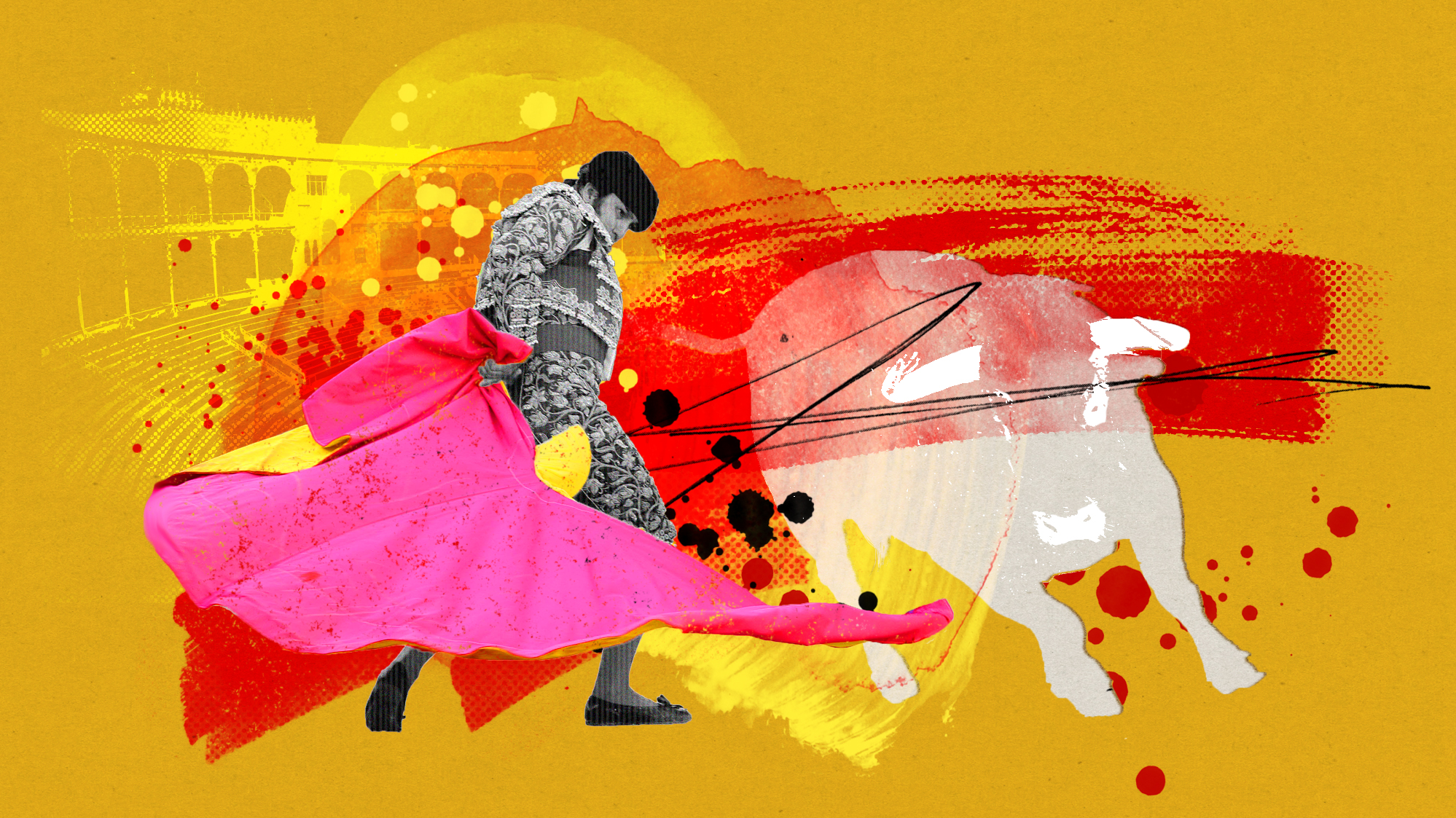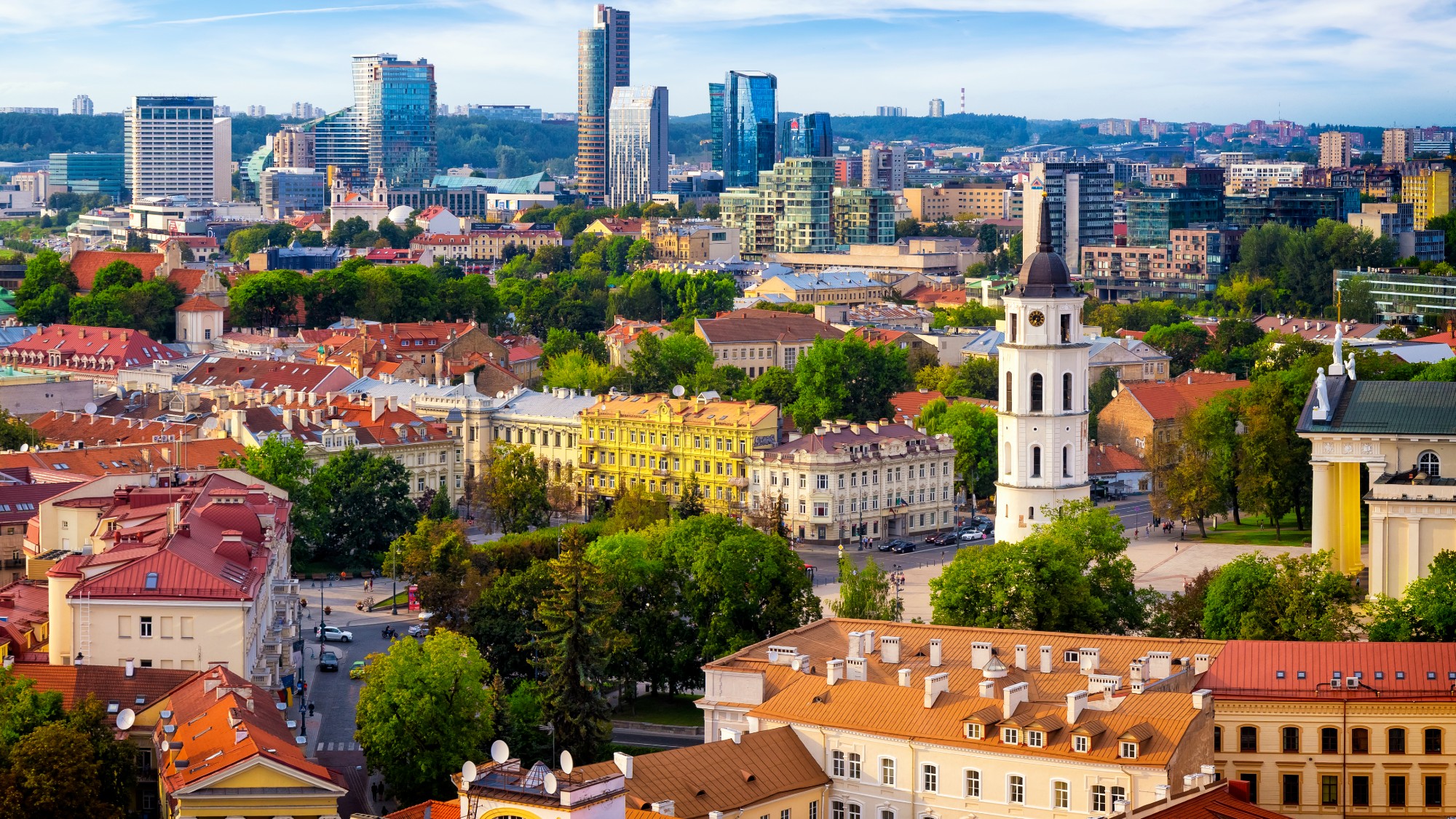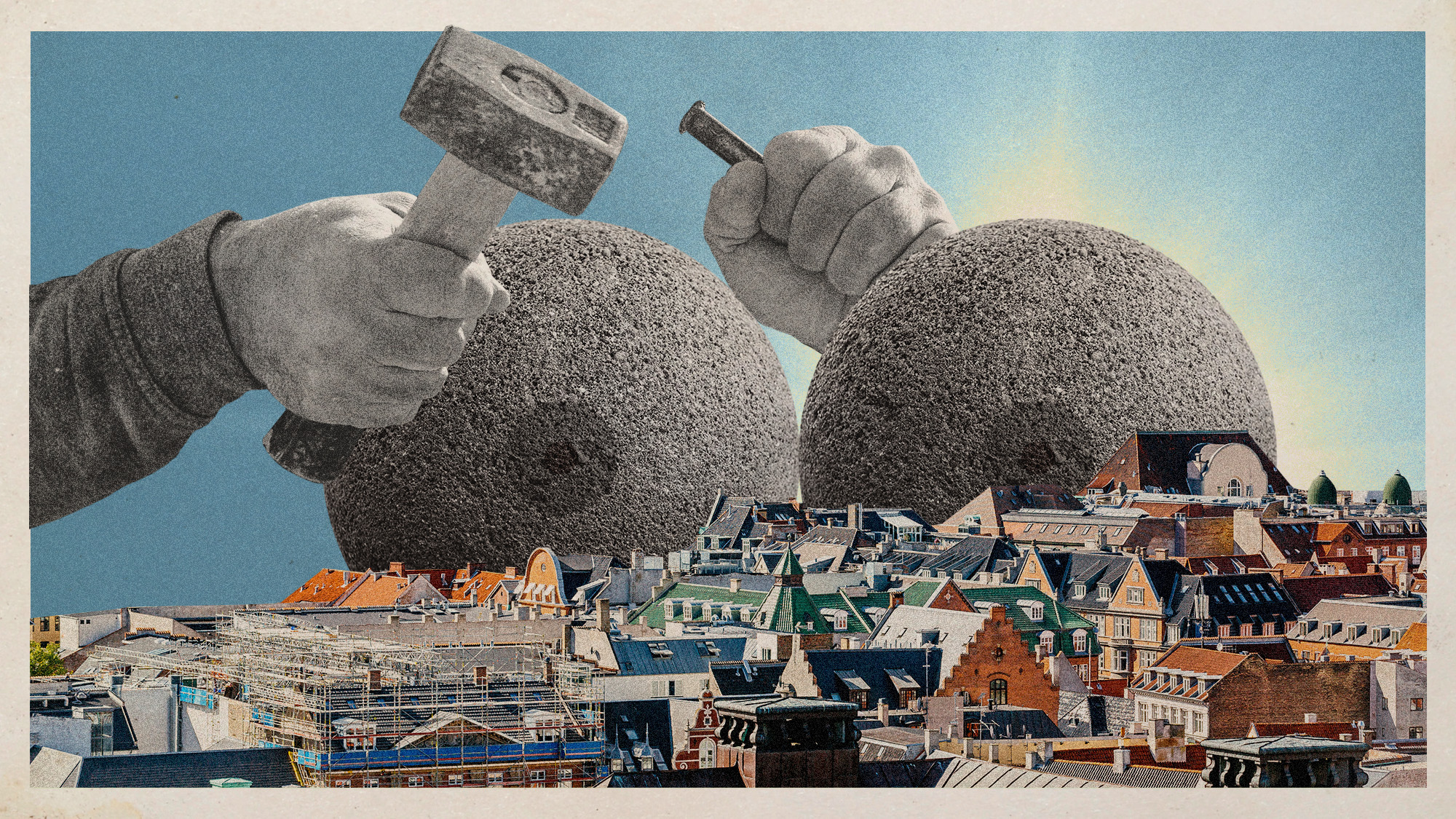Spaniards seeing red over bullfighting
Shock resignation of top matador is latest blow in culture war over tradition that increasingly divides Spain

A free daily email with the biggest news stories of the day – and the best features from TheWeek.com
You are now subscribed
Your newsletter sign-up was successful
Spain’s leading matador “stunned the bullfighting world” last week by “symbolically cutting off his ponytail in the ring”, said The Times.
The gesture by Morante de la Puebla in Madrid’s Las Ventas, after a “triumphant” performance, signalled the retirement of “one of the greatest ever bullfighters” at the age of 46. His career, although “plagued by near-death gorings and long absences due to depression”, often “exhausted critics’ superlatives” and “injected” bullfighting with new popularity, “drawing young and old” to watch it. His resignation, which astonished even his own team, is “a blow to the tradition as public sentiment is turning against it”.
Relic of the past
Bullfights have been held on the Iberian Peninsula for at least 900 years, and are synonymous with Spanish culture. In the 1930s, dictator Francisco Franco declared it the “national fiesta”; today, bullfighting still enjoys protected status as part of Spain’s cultural heritage. “Arguably, it predates football as the first form of mass entertainment,” Duncan Wheeler, a historian at the University of Leeds, told CBC. “It’s a massive part of Spanish and European history.”
The Week
Escape your echo chamber. Get the facts behind the news, plus analysis from multiple perspectives.

Sign up for The Week's Free Newsletters
From our morning news briefing to a weekly Good News Newsletter, get the best of The Week delivered directly to your inbox.
From our morning news briefing to a weekly Good News Newsletter, get the best of The Week delivered directly to your inbox.
There has always been some level of opposition. But since the explosion of pet ownership in the 1990s, interest in animal welfare has been growing and, today, increasing numbers of Spaniards view bullfighting as “an archaic practice involving unacceptable cruelty”. A study in February suggested that about 77% of Spaniards opposed bullfighting, rising to more than 80% of those under 35. Fewer than 2% of Spaniards buy tickets to bullfights, according to Spain’s Ministry of Culture. Animal rights activists are “capitalising on that diminishing support to push for total bans”.
“Bullfighting is a relic of the past,” said Cristina García, vice-president of Spain's pro-animal rights party PACMA. “We’ll keep working until there is no trace of bullfighting left in our country.”
Wrong side of history?
“Bullfighting, like boxing, once offered young men a path out of poverty,” said The Economist. But its days “seem numbered”, in Spain and in its former colonies. In Colombia, bullfighting is “on its knees”, with a “blanket prohibition” due to come into effect in 2027. In Mexico, home to the world’s largest bullring, legislators voted last year to ban bullfights. Spain’s “national fiesta” may “be on the wrong side of history”.
In 2010, Catalonia became the first Spanish region to ban bullfighting, but Spain’s constitutional court overturned the decision six years later, ruling that only the Spanish government had authority over issues relating to national cultural heritage. Since then, it has become a “defining issue in Spain’s culture wars”, said Reuters, pitting majority anti-bullfighting left-wing parties against the increasingly powerful right, who tend to support the tradition.
A free daily email with the biggest news stories of the day – and the best features from TheWeek.com
Now “there is a legislative war afoot”, said EuroWeekly News. In February, the popular campaign “no es mi cultura” (“it is not my culture”) garnered more than 700,000 signatures, calling for the government to remove bullfighting’s protected status. But last week Spain’s ruling Socialists abstained from a vote to debate the petition as a citizens’ initiative, saying they “neither prohibit nor promote” bullfighting. PM Pedro Sánchez’s party may “see itself as progressive”, said The Local, but the ambivalence is proof that banning or restricting bullfighting “doesn’t enter the Socialists’ plans”. After all, bullfighting still supports an industry worth an estimated €1.6 billion a year, according to a 2021 study published in Current Issues in Tourism.
As “it’s hard to envision a Spain” that isn’t governed by either the Socialists or the conservative People’s Party, “it may be even longer before there is a real national debate about whether bullfighting should stay or go”.
Harriet Marsden is a senior staff writer and podcast panellist for The Week, covering world news and writing the weekly Global Digest newsletter. Before joining the site in 2023, she was a freelance journalist for seven years, working for The Guardian, The Times and The Independent among others, and regularly appearing on radio shows. In 2021, she was awarded the “journalist-at-large” fellowship by the Local Trust charity, and spent a year travelling independently to some of England’s most deprived areas to write about community activism. She has a master’s in international journalism from City University, and has also worked in Bolivia, Colombia and Spain.
-
 The EU’s war on fast fashion
The EU’s war on fast fashionIn the Spotlight Bloc launches investigation into Shein over sale of weapons and ‘childlike’ sex dolls, alongside efforts to tax e-commerce giants and combat textile waste
-
 How to Get to Heaven from Belfast: a ‘highly entertaining ride’
How to Get to Heaven from Belfast: a ‘highly entertaining ride’The Week Recommends Mystery-comedy from the creator of Derry Girls should be ‘your new binge-watch’
-
 The 8 best TV shows of the 1960s
The 8 best TV shows of the 1960sThe standout shows of this decade take viewers from outer space to the Wild West
-
 The battle over the Irish language in Northern Ireland
The battle over the Irish language in Northern IrelandUnder the Radar Popularity is soaring across Northern Ireland, but dual-language sign policies agitate division as unionists accuse nationalists of cultural erosion
-
 Exploring Vilnius, the green-minded Lithuanian capital with endless festivals, vibrant history and a whole lot of pink soup
Exploring Vilnius, the green-minded Lithuanian capital with endless festivals, vibrant history and a whole lot of pink soupThe Week Recommends The city offers the best of a European capital
-
 China’s burgeoning coffee culture
China’s burgeoning coffee cultureUnder The Radar Local chains are thriving as young middle-class consumers turn away from tea
-
 Primatologist Jane Goodall dies at 91
Primatologist Jane Goodall dies at 91Speed Read She rose to fame following her groundbreaking field research with chimpanzees
-
 ‘Hypocrisy’ and ‘blackmail’: Ryanair’s feud with Spain
‘Hypocrisy’ and ‘blackmail’: Ryanair’s feud with SpainUnder the Radar Bitter row over rising fees sees the Irish budget airline slash a million seats on regional routes this winter
-
 A guide to Budapest's healing thermal baths
A guide to Budapest's healing thermal bathsThe Week Recommends There's a reason why it's called the City of Spas
-
 Denmark's 'pornographic' mermaid statue is in hot water
Denmark's 'pornographic' mermaid statue is in hot waterUnder the Radar Town will reportedly remove voluptuous Big Mermaid, despite statue being 'arguably a bit less naked' than Copenhagen monument the Little Mermaid
-
 Destination unknown: the exciting ins and outs of mystery travel
Destination unknown: the exciting ins and outs of mystery travelThe Week Recommends Surprise yourself the next time you vacation